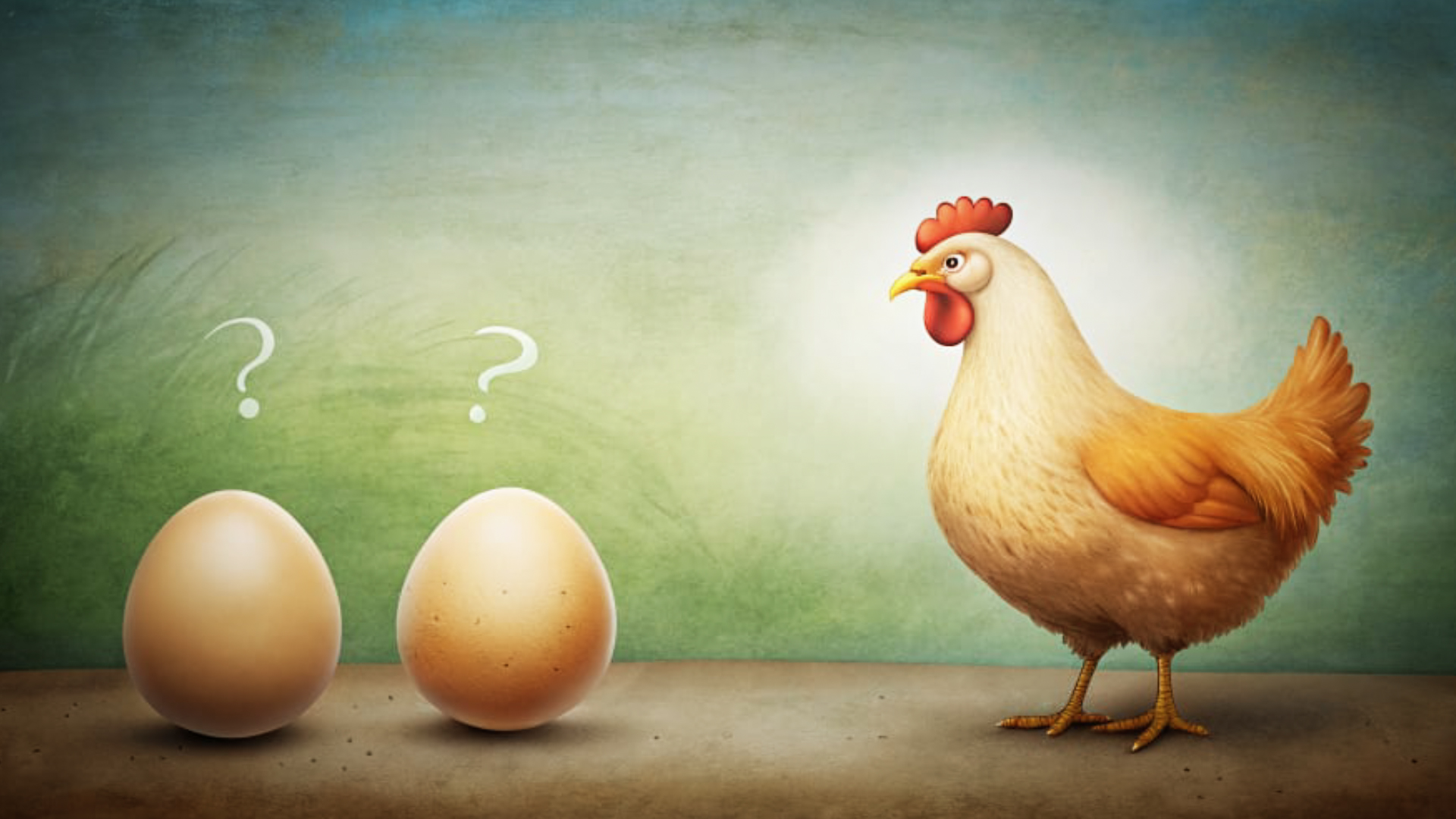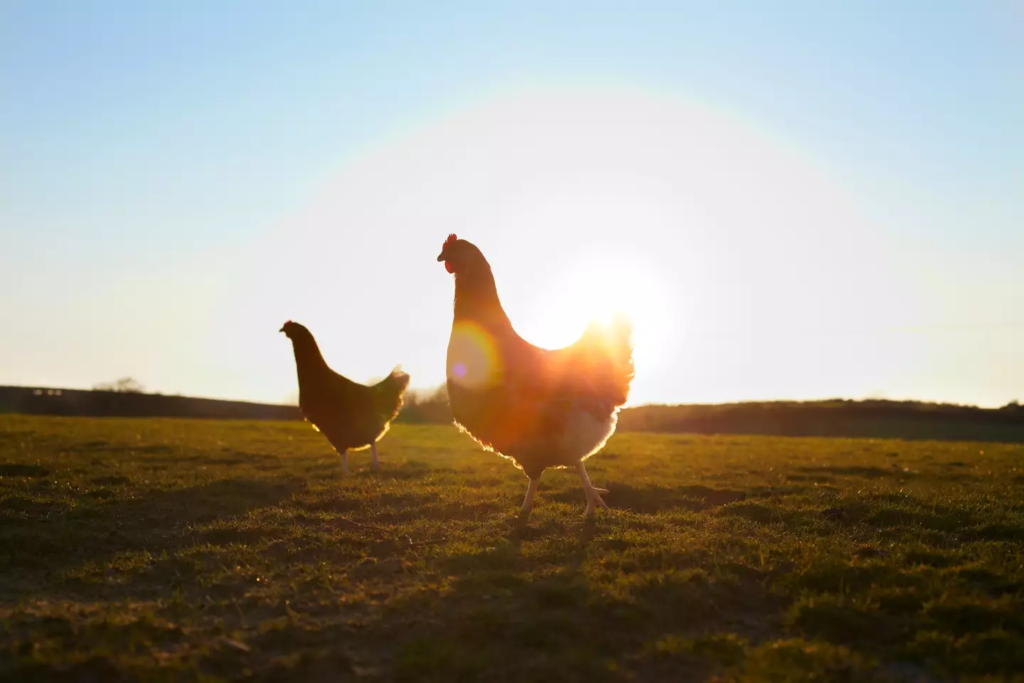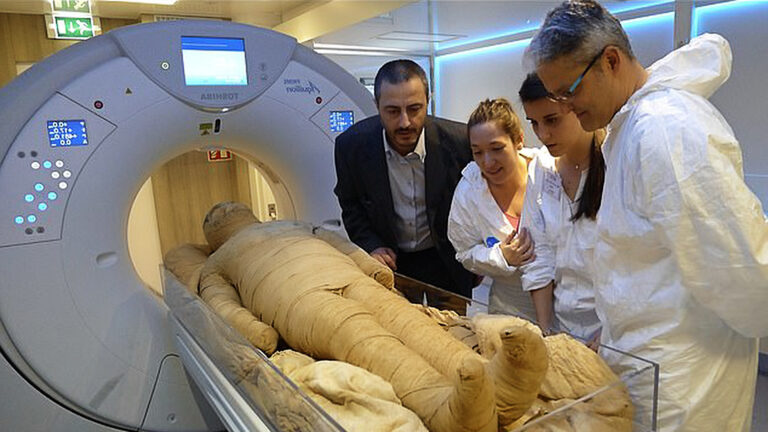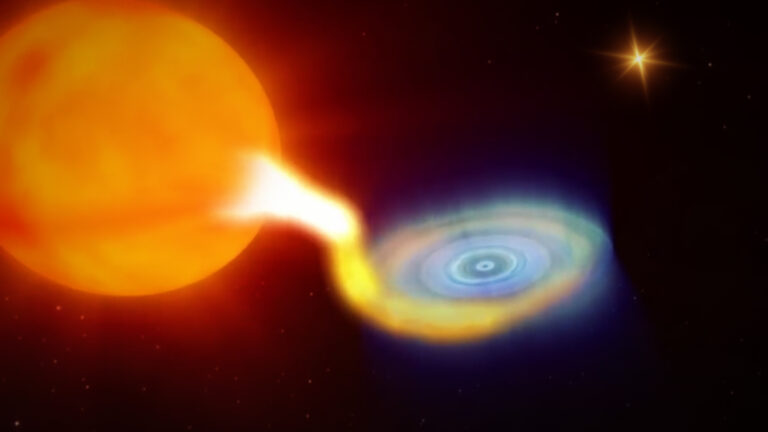Scientists Think They’ve Finally Found the Answer to the Age-Old Chicken and Egg Debate

For centuries, humanity has pondered one of life’s greatest riddles: What came first, the chicken or the egg? This philosophical conundrum has baffled thinkers, scientists, and casual observers alike. On one hand, you can’t have a chicken without an egg, but on the other hand, you can’t have an egg without a chicken to lay it. It’s a paradox that seems to loop endlessly, and many have wondered whether it’s possible to reach a definitive answer.
The chicken and egg question isn’t just an idle thought experiment, though—it has inspired discussions about evolution, biology, and the very nature of life itself. From ancient philosophers like Aristotle to modern-day scientists, people have been struggling to come to terms with this seemingly unresolvable dilemma. And for many, it’s been a source of amusement and curiosity alike, even making its way into pop culture—like in the charming animated film Chicken Run.
But now, a team of scientists from the University of Geneva claims they may have cracked the case and found the answer to the age-old question. Their study sheds new light on the development of eggs and animals, and they believe it can definitively determine whether the chicken or the egg came first. So, how did they come to this conclusion, and what does this mean for one of the most perplexing debates in science?
The Ancient Organism That May Hold the Key
The answer, according to these researchers, lies not in chickens or even birds, but in an ancient, microscopic organism called Chromosphaera perkinsii. Discovered in 2017 within marine sediments around Hawaii, this single-celled organism is believed to date back over a billion years, long before the first animals even roamed the planet. And it’s this organism’s ability to form multicellular structures that closely resemble the early stages of animal embryos that provides the breakthrough insight into our age-old question.

In essence, this study indicates that nature had the tools to create eggs—specifically, a biological structure designed for reproduction—before it had the complex animals capable of producing them. If we follow this reasoning, it suggests that eggs came first, long before animals like chickens could evolve. Essentially, this breakthrough seems to provide evidence that nature was already using eggs for reproduction well before it had developed the more sophisticated and complex forms of life we recognize today, including the chicken.
This discovery is significant for another reason: It opens up new avenues for understanding the evolutionary development of reproductive systems. It turns out that eggs were likely an essential feature in the history of life on Earth, appearing long before chickens—or even other animals like birds—came into existence. For those who were already leaning toward the egg as the answer to the riddle, this discovery would seem to tip the scales in favor of the egg—especially given that eggs existed long before chickens ever did.
What Do People Think? Let’s Hear from You!
We know this debate has sparked countless discussions throughout the years, and it seems like everyone has an opinion on whether the chicken or the egg came first. Here’s what some of our readers have to say:
- Sarah L. (via Reddit):
“I’ve always been team Egg! It just makes sense that eggs existed long before chickens. If we go way back in history, dinosaurs were laying eggs long before chickens existed, so I think the egg definitely came first.” - John D. (via Twitter):
“I see where this new research is coming from, but I still think the chicken had to come first. Evolution is complicated, and there had to be a first chicken somewhere!” - Emily K. (via Facebook):
“This new research is fascinating! It’s amazing to think about how life evolved. Still, I think it’s more about perspective—what we consider the ‘first’ chicken could just be a step in the evolution from the red junglefowl.” - Tom S. (via Instagram):
“I’m just glad someone finally looked into this! I’ve been curious about this for years. I guess it’s the egg after all… but does it really matter?”
It’s clear that this topic stirs strong feelings and varying viewpoints, with some supporting the new findings and others sticking with their own reasoning. Do you have a take on this age-old dilemma? Join the conversation by sharing your thoughts on social media or leaving a comment below.
Eggs or Chickens: What Does Evolution Have to Say?
It’s important to note that while Chromosphaera perkinsii provides some fascinating insights, the debate about what came first is far from simple. As we delve deeper into the question, we realize that the answer largely depends on how we define “egg” and “chicken.” After all, eggs have existed for far longer than modern chickens—dinosaurs laid eggs millions of years before the red junglefowl (the wild ancestor of today’s domestic chicken) appeared. So, in terms of sheer evolutionary history, eggs are undoubtedly the older of the two.
But if we’re specifically talking about the “chicken egg,” things get a little more complicated. The chicken egg as we know it—an egg containing a chicken embryo—was laid by a bird that was almost, but not quite, a chicken. That bird, an ancestor of the modern chicken, is what we refer to as the red junglefowl, which first domesticated around 10,000 years ago. The first true chicken would have hatched from an egg laid by one of these proto-chickens, thus raising the question: Was it the egg or the chicken that came first in the specific context of Gallus gallus domesticus?
The crux of the problem comes down to how we define the “first chicken.” Was it the bird that laid the egg, or was it the chicken that hatched from that egg? Depending on how you look at it, you can make a compelling argument for either side.
Explore the history of the red junglefowl.

The Philosophical Twist: Is the Chicken or the Egg Just a Metaphor?
As much as science might provide an answer, the chicken and egg debate has philosophical implications that stretch far beyond biology. Is this age-old puzzle just a playful thought experiment? Or does it hold deeper meaning about the nature of causality, creation, and time itself?
For centuries, people have used this debate to explore broader questions of existence. Some have viewed it as a metaphor for the cyclical nature of life—where cause and effect are not always as linear as we might think. The question also prompts us to consider the complexity of evolution, which isn’t always a straightforward process. Evolutionary changes happen incrementally and often in ways that we don’t fully understand until much later. This kind of thinking challenges the idea of clear-cut answers and invites us to reflect on the complexity and unpredictability of life’s origins.
In many ways, the chicken and egg conundrum isn’t just about answering a biological question—it’s about understanding how we approach difficult problems and the nature of questions that don’t necessarily have easy answers. Whether you’re a staunch believer in the egg-first theory or you champion the chicken’s case, it’s clear that this question offers much more than a simple resolution—it’s a window into how we think about the world around us.
A Definitive Answer, But More Questions Remain
So, after all the debates and discussion, it seems that science has finally provided an answer to the chicken and egg dilemma: the egg came first. The discovery of Chromosphaera perkinsii and its role in early reproduction supports the notion that eggs existed long before chickens—or any animals resembling chickens—appeared on the scene. This means that eggs were already a fundamental part of the biological world long before the first chickens walked the Earth.
But while we now have a clearer understanding of the origins of eggs and chickens, this breakthrough also raises new questions. How did the early eggs function before the development of complex animals? What were the evolutionary steps that led from simple organisms to the rich diversity of life we see today, including chickens? The study of evolutionary biology is far from over, and this answer to the chicken and egg riddle may just be the beginning of even more fascinating discoveries about life’s origins.
Learn more about the evolution of eggs.
So, while we may now have a more scientifically grounded answer to one of life’s biggest mysteries, it’s clear that the journey of discovery is far from finished.
Featured Image Credit: Getty Stock Images






